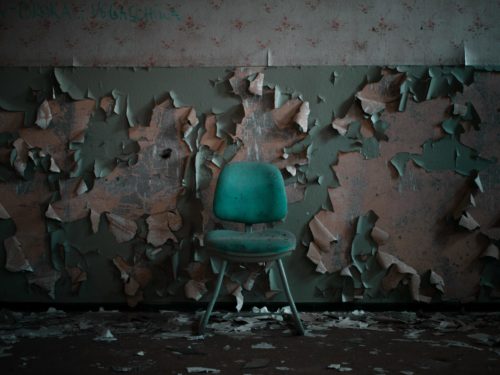Sometimes, we know the next step but we don’t know exactly how to take it or what it looks like when we do. That’s the case with many young women who write to me asking about the idea of telling someone.
My first advice to anyone struggling is always, “You need to tell somebody.”
The follow-up questions are usually:
How? Who? and Why?
Since I touched on this topic of confession again recently, and have been receiving more e-mails asking for a practical help in this area, here are five things I would say you need to know before you tell someone.
1- You Need to Tell Someone You See in Person
With the internet being what it is, and social media being what it is, and Generation Z being who they are, it is really easy for the lines between real life and online life to be blurred. We might blurt something out on social media or on a blog, but that isn’t quite the same as telling a person we see and know.
It doesn’t need to be someone you see every day, but it does need to be a person who is real to you, who has real ways of getting in touch with you. They need to be in a position where they can speak into your life addressing you- not your online persona or username- you. Even video conferencing with a Christian counselor can be helpful. Posting under an anonymous username on a forum online isn’t. It can be a great supplement for sure, but not a replacement.
Anonymity is one of the things that can draw women to pornography and it’s one of the things that can keep them there.
Anonymity is one of the things that can draw women to pornography and it’s one of the things that can keep them there.
2- You Need to Tell Someone You Trust
Whoever you tell should be someone you have a trusting relationship with. Why? Because your initial reaction after telling them is going to be to run the other way. If they are someone you trust, then you will have an easier time reminding yourself that they care. When things get a little rocky, you can lean on the fact that you know this is someone you trust.
Someone you trust do to what? To care about you, to keep your confidence, and not to walk away.
It doesn’t have to be your parents. That’s scandalous to some people, but I don’t believe you have to tell your parents. There are certain situations where doing so could be unhelpful, which can be the case when one or both parents are the ones who introduced you to pornography (it happens more often than you think) or when their tendency is to sweep hard topics under the rug and hide faults away.
3- Confession Isn’t About Humiliation
When I was growing up, I heard so many messages about pride being the obstacle to confession. “If you don’t tell somebody it’s because your pride is in the way.” The thought seemed to be that once you confessed, your pride was gone and you would be free. But that’s just not it.
All the years I didn’t confess weren’t out of pride, but fear. I was afraid. I was afraid someone wouldn’t be able to help me. What if I tell you and you walk away? What if I tell you and you don’t know how to help? What if I tell you and you can’t help? What if I tell you and you hurt me? That is a real fear for women struggling with pornography who feel their only option is to confess their struggle to men who, we are told, are also likely struggling with pornography and lust.
You want me to walk into my pastor’s office- him being a man who may also be struggling with pornography- sit down with him alone and tell him about my struggles? How am I not supposed to feel like a piece of meat after that?
Yes, the idea of confession was humiliating but the idea of humiliating myself over and over again was terrifying.
If I confessed to this person and they couldn’t help, what was I supposed to do? In the Bible, when it talks about confession, there is always a reason behind it, and it’s not “so you stop being prideful.” It is so the people you are confessing to can pray for you and help you. It’s not just “so someone knows.”
Confession isn’t a way to publicly humiliate yourself and find freedom. It is a way to rally an army around you to help.
4- You May Have to Do it More Than Once
When I speak to leaders and pastors, I warn them. I tell them that if a woman comes to them confessing a struggle with pornography, it is because they are her last hope. Wherever she is going scares her more than the idea of the pastor/leader/counselor knowing. It’s a call for help, and if they walk away, she will never confess again.
While that’s holding very true for Millennials, it seems to be a little different for Generation Z (today’s teenagers and college students). I have been dumbfounded by the number of girls who come up to me after my events openly talking about their porn use and sexting habits. That’s the difference between a generation of shame and a generation of normalcy.
Understand this: If you are confessing and hoping to find help, you might have to do it more than once.
Not an exciting prospect, I know, but one you need to be mentally and emotionally prepared for.
5- Confession is Just the Beginning
In keeping with the depressing news, let me remind you that confession is only the beginning of your journey. There is work to be done afterward- a work of establishing boundaries, rebuilding weaknesses, and finding healing and freedom. Confession is the first part in that process. It is not an express pass to the end. The person you confess to is not going to solve all of your problems and it can be frustrating for them if you expect them to.
Regardless of who they are- a pastor, a counselor, your parents, a husband, a boyfriend, a lifelong friend- the work of freedom is really all on you and your relationship with God. The purpose of confessing is to rally together a team to help you, to walk that journey with you. They can keep you accountable. They can lift you up in prayer, but they can’t run your race for you. It’s a long road. Confession is only the beginning.
Keep that in mind and it might save you some of the disappointment of frustrated expectations.
For further resources, you can check out the Resource Page.





